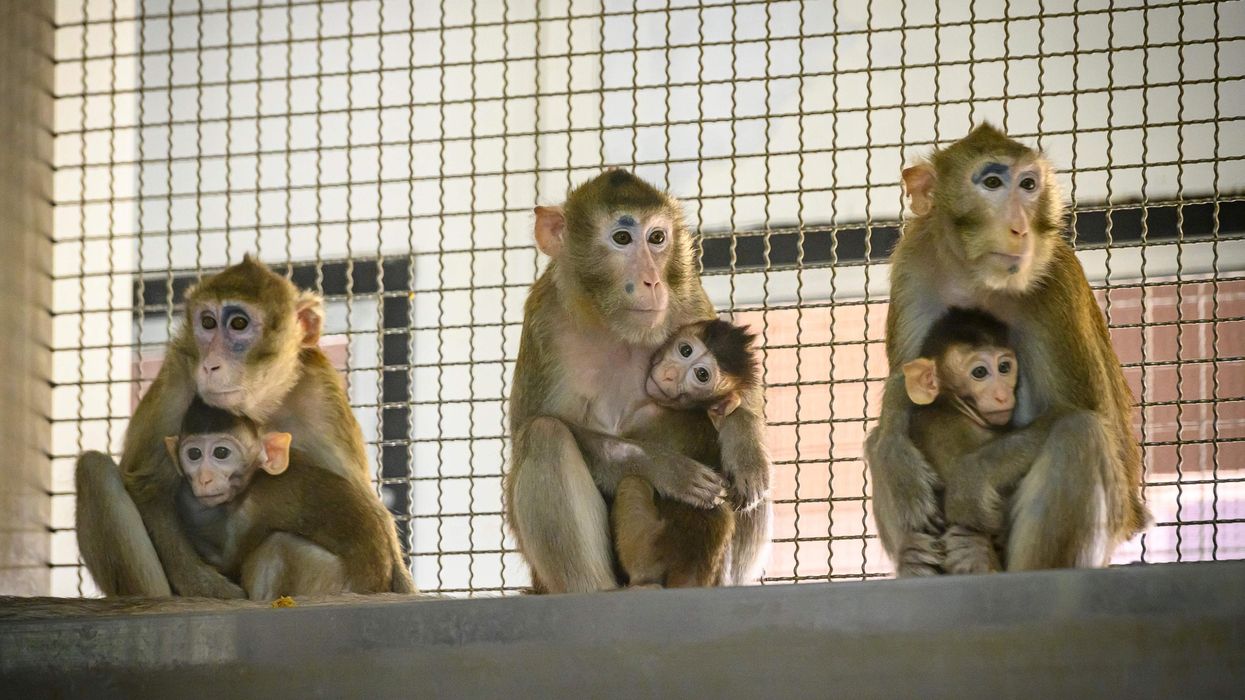"Too many endure deprivations in the present and feel despair about the future. Without hope and a sense of agency, why bother learning how to be a solutionary?"
Apple TV+ had selected me to appear on their "Dear..." series, a show profiling iconic figures and the people they've influenced. I was one of four chosen to be on Episode 7, "Dear Jane Goodall." In the series, those influenced by these famous people share letters we'd written to our heroes, in various settings depicting the ways we've manifested what we learned from them. What an honor it was to read my letter to Dr. Jane Goodall and recount how I'd wanted to be like her when I grew up; how I did get to work with animals, including chimpanzees, before realizing it was more important that I work for animals (as well as for environmental sustainability and social justice). And what a privilege it was to speak on the same stage as she when we both keynoted a humane education conference sponsored by our respective organizations.
I've been on TV shows before, but never on this scale, and never over two days of taping in multiple locations. At first, I resisted the pampering. I didn't want my assistant to carry my backpack, or the make-up artist to touch up my hair every few minutes. I certainly didn't need a private bathroom, nor to eat before everyone else. When my assistant and I got to a new set, and he used his headset to announce "the talent" would be arriving momentarily, I didn't know whom he was talking about. I'd never before been referred to as "the talent."
The first day, I was reluctant to order special food and figured I'd just eat whatever I could find that was vegan. Nor did I give my stuff to anyone else to carry. The second day, however, I found myself asking my make-up artist to hold onto my lip balm and beckoning her for my water bottle between takes. I enthusiastically asked my assistant to order me food from a vegetarian restaurant I liked. How quickly I'd adjusted to being treated like a queen. And it had only been 24 hours!
What a wake-up call my two-day experience was. I viscerally discovered how easy it is to become how we're treated. This isn't some great new insight, of course. Dorothy Law Nolte's poem, "Children Learn What They Live," made this point decades ago, and the comedy Trading Places (perhaps my all-time favorite movie) drove home this message by demonstrating its extremes. But experiencing for myself the speed with which my attitudes and expectations could change, even subtly, shocked me.
Since my blog is about helping people become solutionaries, it's time to pivot to a bigger question: What might we learn from such experiences that would be valuable for understanding how to better educate people - especially youth - to be system-changing solutionaries?
One of the challenges with teaching young people about the problems in the world, and motivating them to work on solving them, is the discouragement (or worse) that so many feel about the possibilities for lasting positive change. Too many endure deprivations in the present and feel despair about the future. Without hope and a sense of agency, why bother learning how to be a solutionary?
Students with significant privilege due to their family's status, wealth, education, parental availability, societal expectations and treatment, and other factors, may more easily feel empowered to contribute to a more just, humane, and sustainable society if given the opportunity to learn about issues of injustice and cruelty. In my experience, most such students are able to acknowledge their unearned privileges once they are pointed out. They then often feel compelled to contribute to the creation of more equitable and humane systems.
Students who have borne the brunt of structural forms of oppression and/or poverty, neglect, or violence, however, need to be provided not only with support but with acknowledgement that their negative life experiences are equally undeserved. If they feel disempowered, angry, resentful, depressed, sad, and/or afraid, there's good reason.
Structural forms of oppression, abuse, and injustice are deeply embedded in societies, but many have been transformed over time. It's important that we remind ourselves and young people that positive changes have happened and continue to happen through the work of people committed to building more just and compassionate societies. Knowing that problems have been and can be solved by dedicated people, and that collaboratively solving problems is meaningful and often joy-inducing, is key to sparking a solutionary revolution that will benefit everyone, but especially those suffering most, including nonhuman animals.
Just as we can become entitled by receiving royal treatment and become despairing by enduring cruel or unjust treatment - both of which lead to feedback loops that create ever greater inequities and injustices - we can also become empowered by experiencing the impacts of our efforts to transform systems. Recognizing our capacity to make a difference spurs us to action. Action then leads to positive change. Positive change then leads to hope. Hope may then spur us to more action. That's a beautiful feedback loop.
Last week, Jane Goodall agreed to be interviewed for a mini-documentary on my organization's efforts to educate a solutionary generation. The show will air early next year on PBS TV stations and reach millions of people. The seed Jane planted in me as a child helped lead directly to my work in humane education. That she is going to speak about the importance of such education is not just one of the greatest honors of my life, but also a powerful example that when we inspire others to have agency, they become agents of change. So let's treat each other as people capable of making a positive difference.



